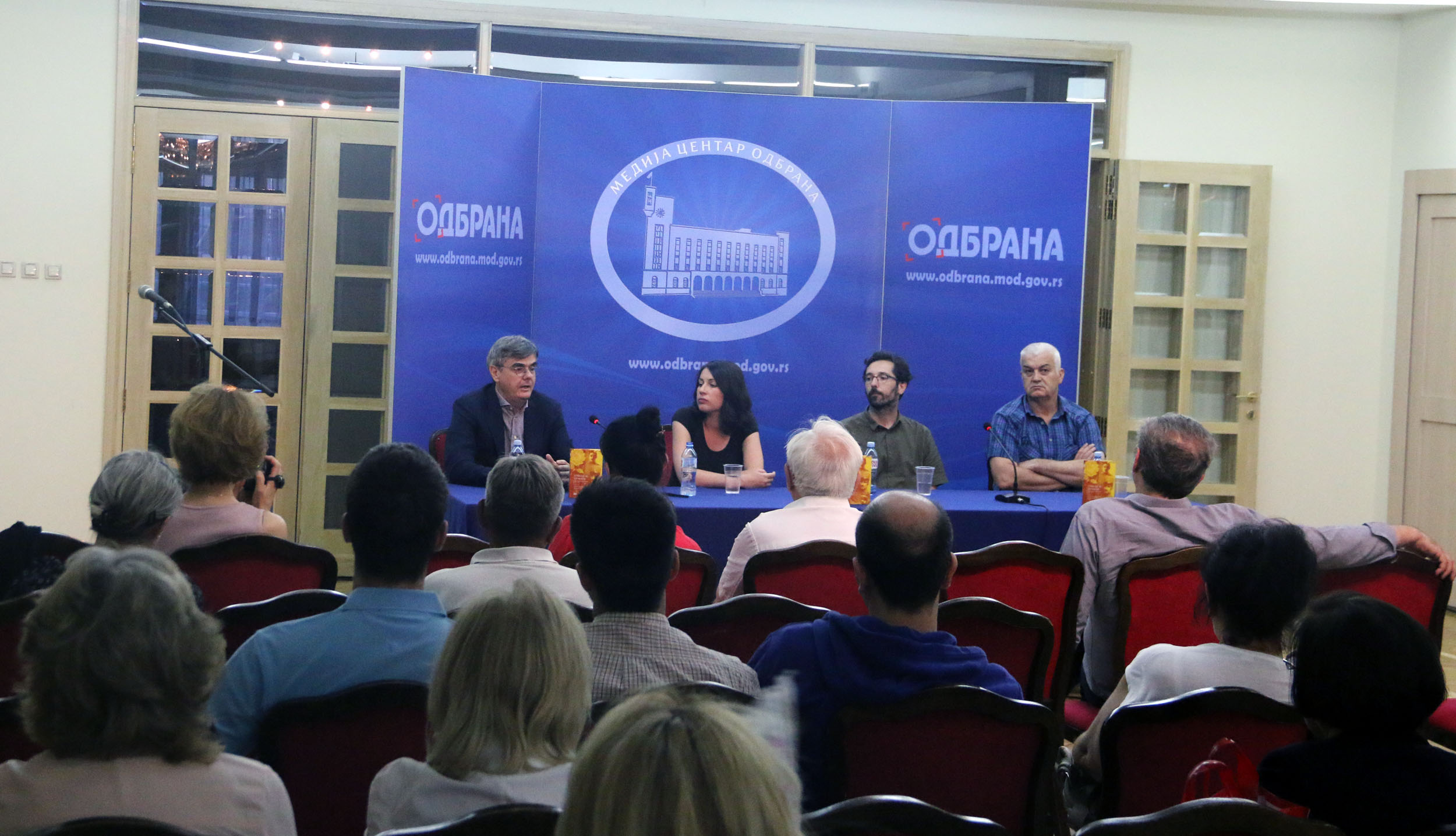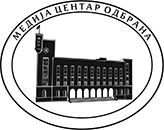14.06.2017
The Promotion of the Book “Immortelle and Sulphur”
 Public Relations Department of the Ministry of Defence of the Republic of Serbia, Media Centre “Odbrana” and Publishing House “Klio” presented this evening in the Atrium of the Serbian Armed Forces Club, a book “Immortelle and Sulphur” edited by Dunja Dušanić and Danilo Šarenac.
Public Relations Department of the Ministry of Defence of the Republic of Serbia, Media Centre “Odbrana” and Publishing House “Klio” presented this evening in the Atrium of the Serbian Armed Forces Club, a book “Immortelle and Sulphur” edited by Dunja Dušanić and Danilo Šarenac.The book “Immortelle and Sulphur” follows the faiths of two young men of the same age who were mobilised in the famous pupils’ battalions 1914-1915 and who, going through some of the worst experiences of the First World War in Serbia, noted their experiences in their journals.
Until now unpublished journals of Dragoljub Ranković and Milutin Ristić are precious not solely because they have been preserved in their entirety owing to the care of their families, but also because they depict different persons and different consequences of the First World War for very young people who were caught up in it.
Speaking about the book, a historian Vojislav Pavlović emphasised that it was a unique testimony of the horrors of the Great War from the perspective of ordinary people who had been mobilised.
Milutin Ristić started his life by becoming, through his school, a member of that famous battalion of 1300 corporals - Pavlović stressed, adding that each historic source did not represent a source for what it was witnessing, but it was a source about its very author, and Milutin Ristić was the source for all those in his situation, in a chronologically very interesting moment of the Serbian Army epic during the Great War.
Historian Milan Terzić from the Strategic Research Institute pointed out that the book, among other, was a testimony about Serbia that fought back in a quite unequal fight.
 - Getting out from these multiple layer stories about the Great War is actually publishing the memories of these people who were never asked whether they wanted it or not, but who found themselves in the chaos of war. “What was the end of war” is the question that one of the authors of the memoires raised? The end of war is victory, which means defeat for somebody else – Terzić emphasised, pointing out the dichotomy that war inevitably brings, which is witnessed by the very title of the book.
- Getting out from these multiple layer stories about the Great War is actually publishing the memories of these people who were never asked whether they wanted it or not, but who found themselves in the chaos of war. “What was the end of war” is the question that one of the authors of the memoires raised? The end of war is victory, which means defeat for somebody else – Terzić emphasised, pointing out the dichotomy that war inevitably brings, which is witnessed by the very title of the book.Presenting unusual games of faith which, after a century, connected them with the jounals of the warriors of the Great War, the editors Dunja Dušanić and Danilo Šarenac underscored the historic significance of these testimonies for the consideration of important events that had marked the crucial moments in our history.

